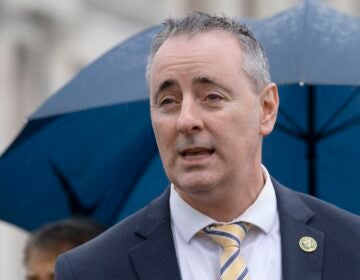What’s wrong with our tax system and IRS?
As a law student in the 1970’s, I studied tax law under Stanley Surrey, a former Assistant Secretary for Tax Policy under President Kennedy. Like most tax law professors at the time, Professor Surrey taught that our tax system had three basic requirements: It had to be fair, however we wanted to define that. It had to be easy to administer. And it had to actually raise the revenue required by the government.
When I began practicing, and then teaching, tax law, I felt that our tax system met those minimum requirements, and I even perceived some nobility in our tax system as representing the price to be paid for living in a free society. But over the years, I’ve become increasingly alienated from our tax system as perceptions of unfairness have increased, along with a dramatic increase in the complexity of the tax laws, and deficits have increased as the tax system fails to produce the revenue to meet government requirements.
All those changes for the worse were epitomized in the so-called fiscal cliff deal enacted in January which made most of the temporary Bush tax cuts permanent, including the treatment of dividends as capital gains instead of ordinary income, which they were treated as throughout the 20th century. That deal aggravates the perception and reality that high income taxpayers often pay a lower tax rate than middle income taxpayers. See Mitt Romney and Warren Buffet and his secretary.
Beyond its unfairness, the fiscal cliff deal compounded the complexity of the tax system. Some taxpayers will have to pay both the 15% and 20% rates on capital gains, not to mention the higher 25% and 28% rates on specialized capital gains. The phase-outs of personal exemption and itemized deductions are back, although no lobbyists asked for them.
The fiscal cliff deal insures that we do not collect sufficient revenue to fund the government, and significantly less than we would have collected if the Bush tax cuts had been allowed to expire. The Congressional Budget Office actually scored the fiscal cliff deal as INCREASING federal deficits over 10 years by $3.9 trillion compared to if it had not passed.
So on all three of Professor Surrey’s priorities, the fiscal cliff deal set us further back. That’s what has happened to our tax system. Why it has happened is harder to explain.
First, lawyers are no longer in charge of tax policy and administration. There used to be a common culture among the tax bar, the tax administrators, and the judges who ruled on tax cases. Now many more participants in our tax system are non-lawyers. Accountants and their firms have become major players. Economists and business people have occupied many top tax policy positions, including as IRS commissioner and Asst. Treas. Sec. for Tax Policy.
Second, more voices beyond tax lawyers means a more complex legislative process, a more rule-specific tax code, and more Congressional staff involved in tax policy in addition to the Joint Committee on Taxation. A deeply polarized and politicized Congress means members have much less time to master the tax system than in the past. See Wilbur Mills and Russell Long.
Third, more voices has led to delegation of more responsibility to IRS beyond the agency’s primary mission of revenue collection. The most egregious example of this is social welfare programs administered by the IRS through refundable credits like the Earned Income Tax Credit and the Additional Child Tax Credit. Why was IRS tasked? Economists think it’s a more efficient model than having Health and Human Services administer a social welfare program. Credits can be characterized as tax cuts, which Congress supports, instead of spending, which Congress opposes, even though the impact on the federal treasury is the same.
But IRS is doing a terrible job on its non-revenue functions. The EITC and ACTC programs are being ripped off by organized crime and other criminals, and nobody knows or seems to care about the extent of the fraud, only that the money gets pushed out the door. Illegal immigrants are barred from collecting EITC, but not the ACTC. Bob Segall, a senior investigative reporter at WTHR-TV in Indianapolis, has received many journalism awards for documenting how illegal immigrants fraudulently claim the ACTC for children not actually living with them in the U.S. These claims were confirmed by the IRS inspector general without any change in IRS policy.
If the immigration amnesty passes, millions of legalized immigrants instead of paying taxes, will be claiming EITC and ACTC refunds. The IRS has already ruled in a June 9, 2000, published ruling that illegal immigrants barred from claiming the EITC can claim it retroactively after being legalized by filing amended returns.
Everyone knows now how well the IRS is performing in its non-revenue function of distinguishing social welfare organizations from political organizations. Like there’s no other agency in the federal government that could do this, like the Federal Elections Commission?
And guess which agency has been designated to enforce the Affordable Care Act, also known as Obamacare? The IRS is expected to assess and collect tax penalties for failures to comply with the myriad requirements of the new statute, and will no doubt be blamed for any sins of omission or commission in trying to execute its new responsibilities. Again, political motives will be attributed to its actions. Couldn’t some other agency than the IRS do this?
In conclusion, I find our tax system to be a hot mess. It is not perceived as fair, and I think it’s not a fair system for reasons beyond public perceptions. It is much too complicated and being poorly administered. And it’s failing in its primary mission of collecting the revenue necessary to run the government.
WHYY is your source for fact-based, in-depth journalism and information. As a nonprofit organization, we rely on financial support from readers like you. Please give today.




